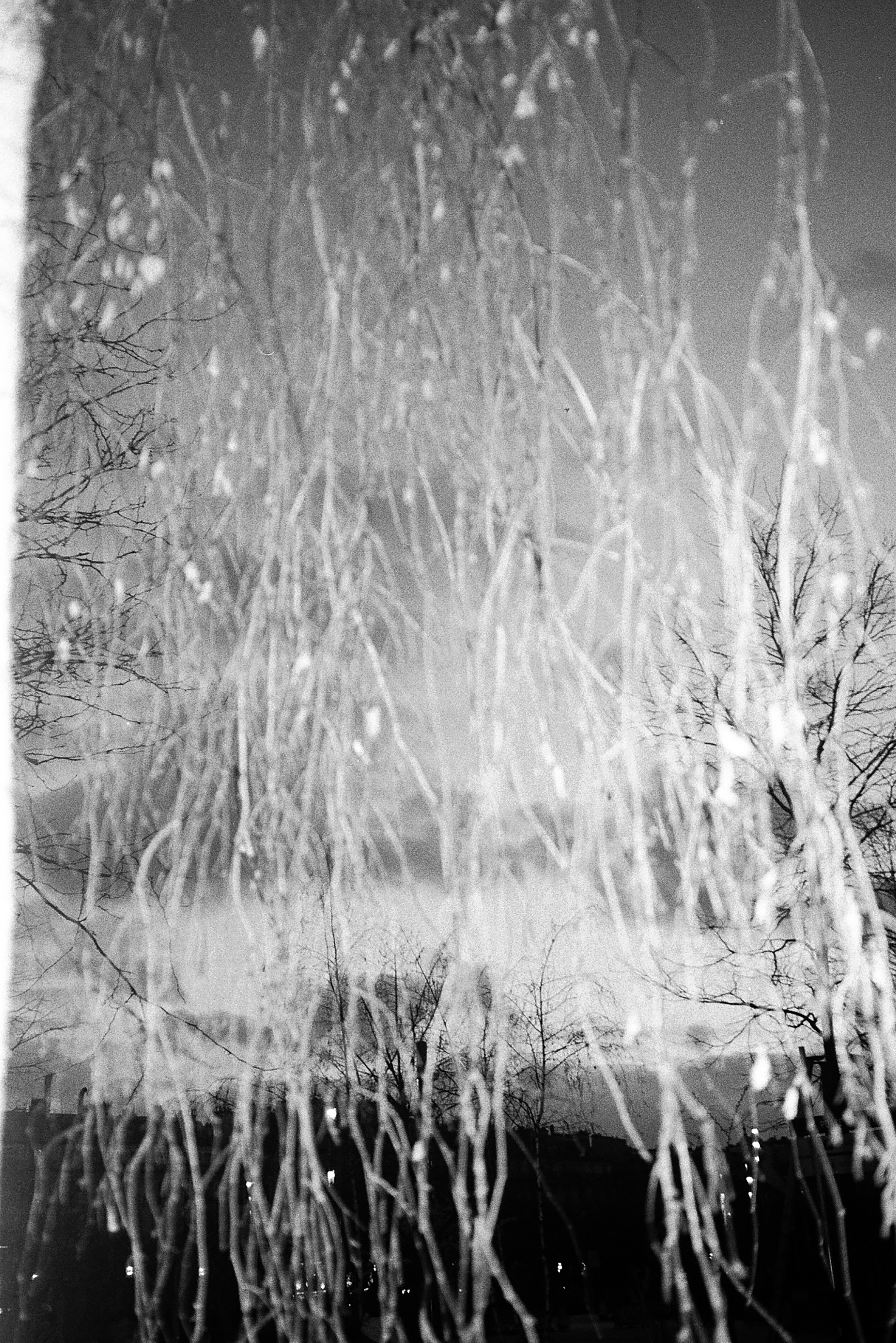Jenn Kang
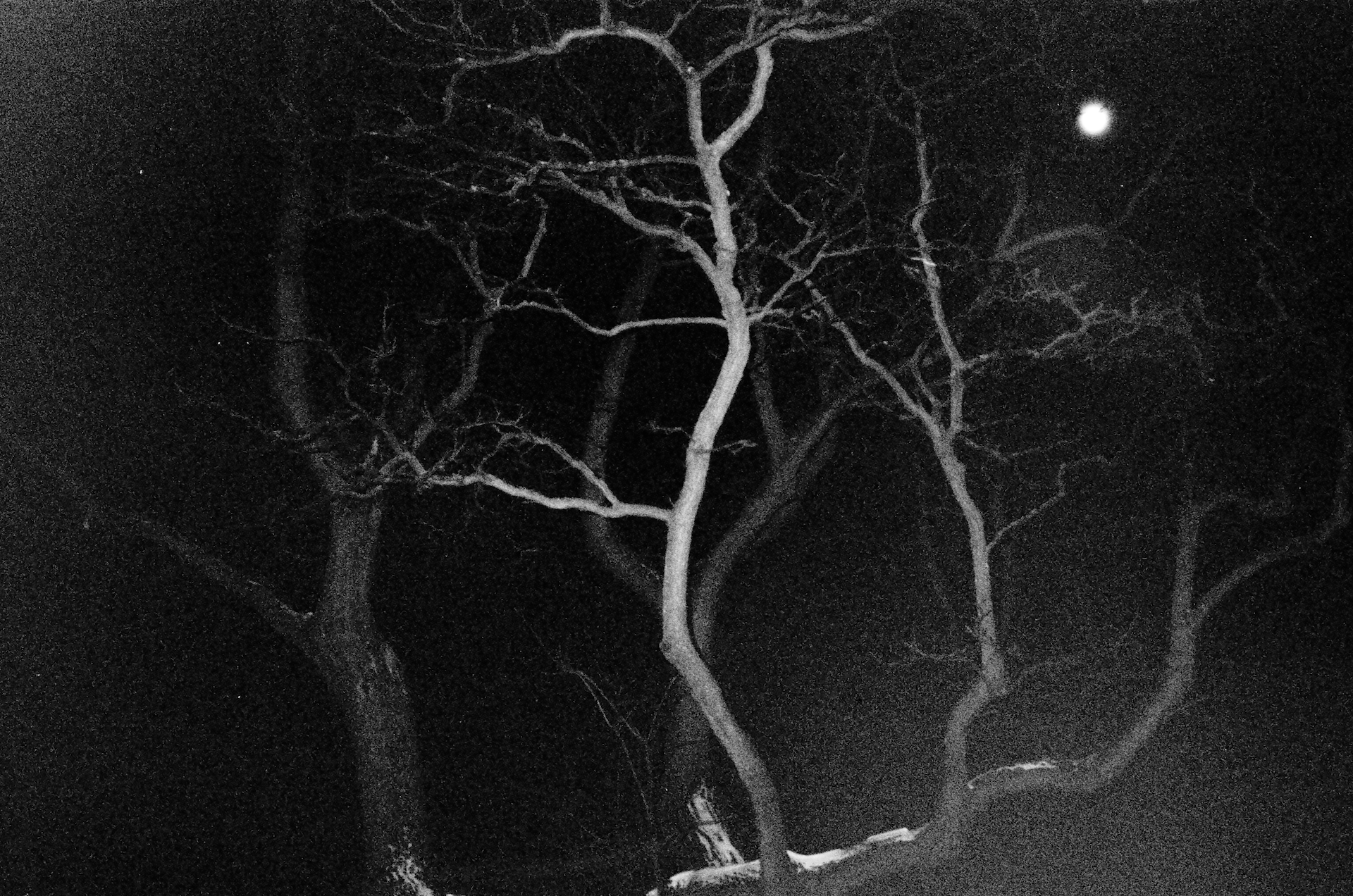
テラススクエアフォトエキシビションvol.26ではLAとソウルを拠点に活動するアーティストのジェン・カンの日本のギャラリーでは初となる個展が開催中です。ジェンは韓国ソウルで生まれ、幼くしてLAで生活をし、そこで写真とアートについて学びました。その後、サンフランシスコやベルリンなどでアートについて学び、現在はソウルにある自身のアトリエで活動中だと言います。今回ensemble magazineではジェンにインタヴューを行いました。彼女の言葉から、LA、ソウル、トウキョウの写真をめぐる風景を感じていただければ幸いです。
Q: あなたのプロフィールを教えてください。あなたはどこで生まれましたか?あなたのふたつの故郷は、あなたの作品をどのように規定していますか?
Q: Please tell us your profile. Where were you born? How long have you been working in LA? Please tell me the situation of the photos of Seoul and LA, and the difference between each city?
年齢、性別、国籍など、カテゴリーに分類されることに違和感があるので、自分の経歴について話すことを控える傾向があります。それらの事柄は、私が作っている仕事とその意図からむしろ気をそらすものになると思っています。そうは言っても、私は自分の文化をとても誇りに思っていますが、だからといって、それらは私の仕事を定義している訳ではありません。私は韓国で生まれ、ロサンゼルスとソウルの両方で育ちましたが、どちらかというとLAでより多くの時間を過ごしました。大学時代にはサンフランシスコとベルリンに住み、その後LAに戻る前に少しパリに住んでいました。ですので、LAとソウルとそれらが私の作品にどのように反映されているのかについての答えは、どちらの都市も必ずしも私や私のアートワークを定義してはいない、ということになります。
I tend to refrain from talking about my background too much because I don’t like being boxed into a category, whether it’s by age, gender or nationality. I think it rather serves as distraction for the work I am making and its intent. That said, I’m very proud of my culture, though it doesn’t define my work. I’m Korean-American and grew up in both Los Angeles and Seoul, although I spent more time in LA. I moved around a lot as a young adult, living in San Francisco and Berlin during my university years then in Paris for a bit before returning to LA. I get a lot of questions about LA & Seoul and how they reflect in my work, but I don’t think either city necessarily defines me or my artwork.
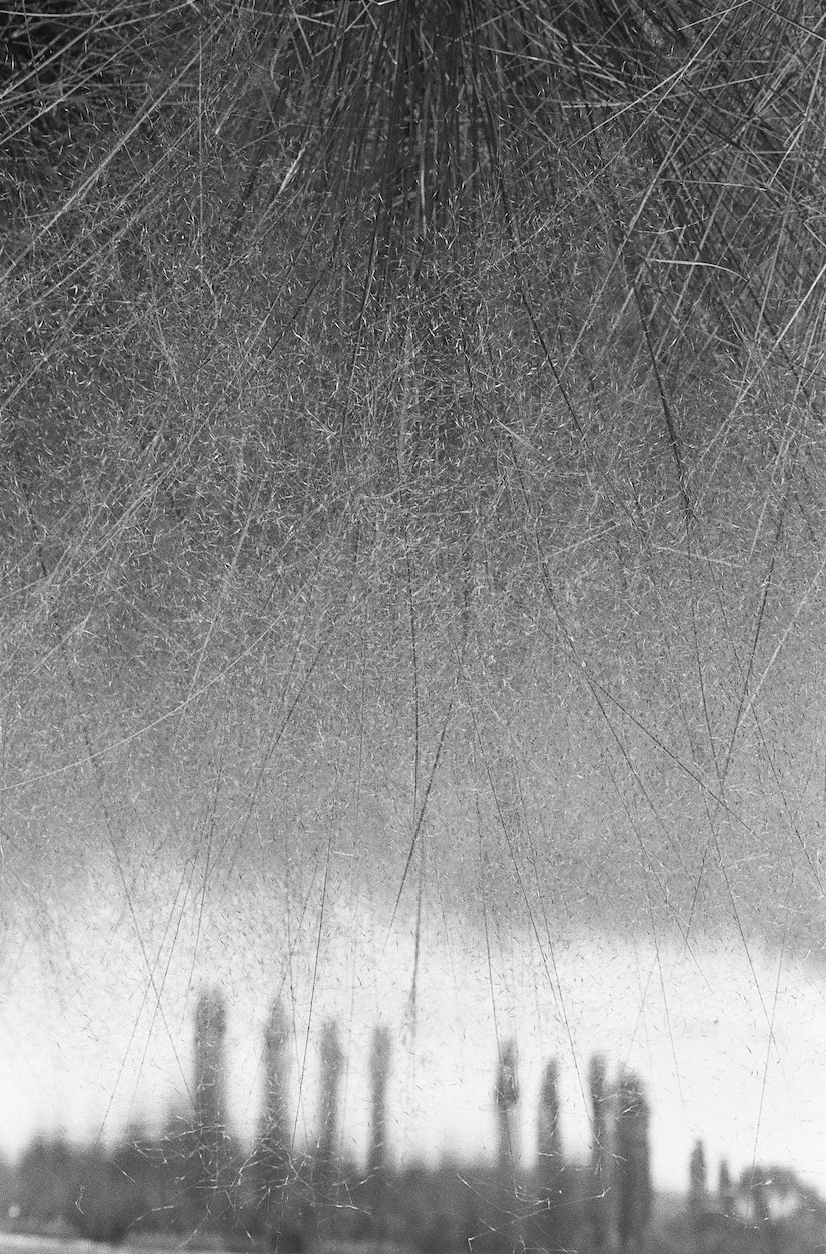
Q:今回のあなたの仕事はどのように生まれましたか?この展覧会に選んだ作品について教えてください。また、これらのシリーズはどのくらい続いていますか?
Q: How was your work born this time? Please tell me about the theme of the work you chose for this exhibition. Where was the work taken? Please tell me the story. How long has the series been going on?
この展覧会の写真はすべて自然の断片で構成されています。それらはまた、自然に対する私の敬愛と相互作用のミックスであることを強調しています。私の作品で繰り返される主題とテーマは、水と反射の総体です。私にとって水の流れは、自然、永続性、エフェメラの本質だけでなく、時間の流れの比喩として機能します。今回展示する作品は、過去6年間にわたって撮影されたものになります。必ずしもこれをシリーズと呼ぶのではなく、むしろ私の作品の普遍的なテーマと考えています。
To give a brief introduction, the photos in this exhibition all consist of fragments of nature. They also highlight my relationship with nature, which is a mix of admiration and alliance. Recurring subjects and themes in my work are bodies of water and reflections – the stream of water serving as metaphors for the flow of time as well as the essence of nature, permanence and ephemera. The photos in the show were taken over the span of 6 years. I wouldn’t necessarily call this a series, but rather a theme that has become a fixture in my work.
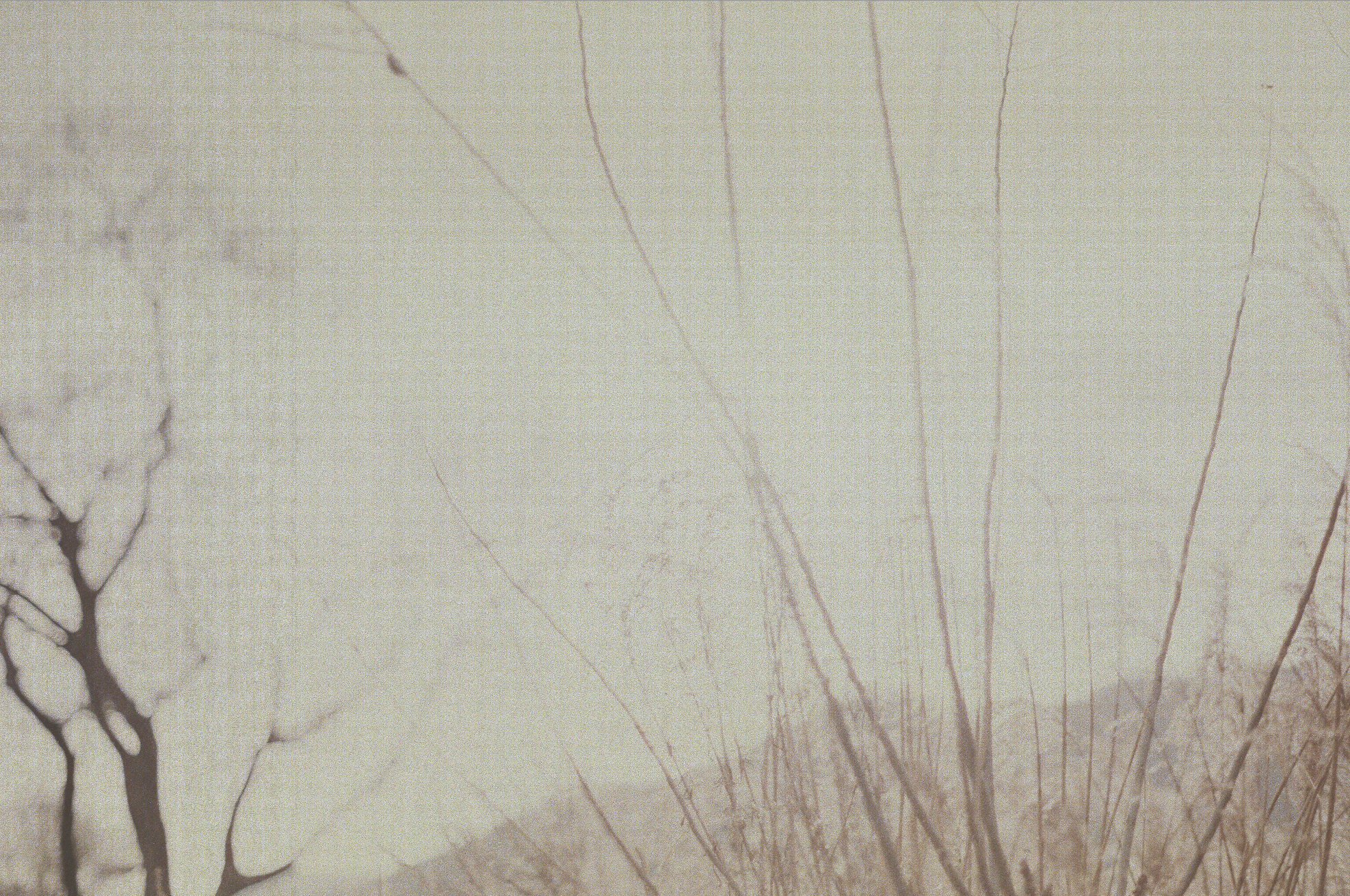
Q:展覧会のタイトル「Vapor Trail」に込めた想いを教えてください。
Q: Please tell me your thoughts on the title of the exhibition.
今回の展示のタイトルはVapor Trail(ひこうき雲)です。私の好きな日本の歌のひとつ、荒井由美の「ひこうき雲」からインスパイアされて名付けました。ですが、それは曲自体と直接的な関係はありません。私はそれが私たちが世界に残す痕跡を説明するための、美しく適切な用語だと思っています。
Vapor Trail. I got it from one of my favorite Japanese songs, ひこうき雲 by Arai Yumi. It doesn’t have any direct association with the song itself. I just thought it was a beautiful and appropriate term to describe the traces we leave in the world.
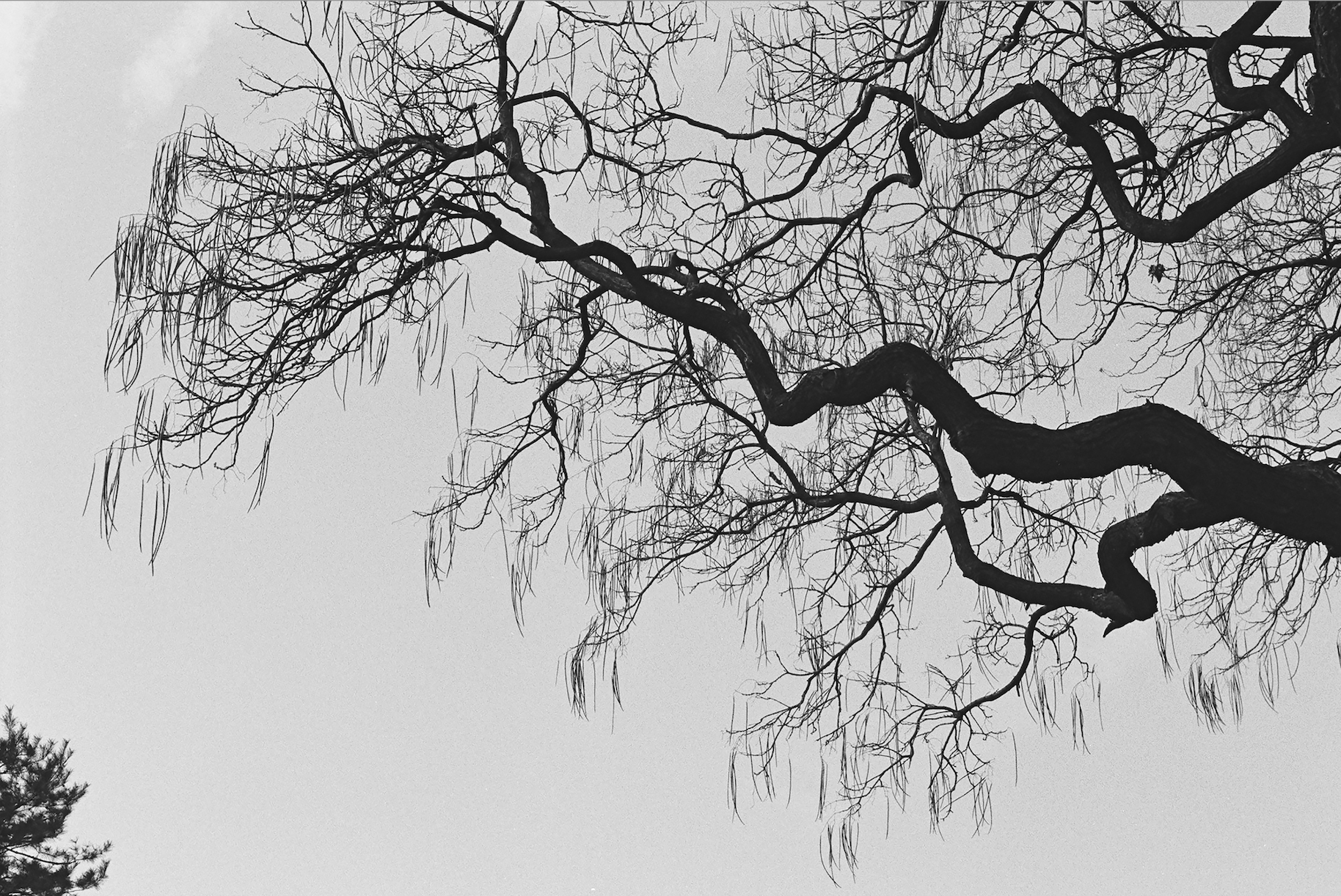
Q:これまで日本で展示したことはありますか?この展覧会の背景を教えてください。
Q: Have you ever exhibited in Japan? Do you have any experience with solo exhibitions? Please tell me the background of this exhibition.
昨年(2022年)、東京で日本のファッションブランドと共同でエキシビションをしたことがあります。それはとてもクールな体験でした。今回の展示は日本のギャラリーでの私の最初のショーであり、私にとって初の個展です。とてもワクワクしています。
I had an exhibition in collaboration with a Japanese fashion brand last year in Tokyo, which was very cool. Besides that, It’s my first show at a gallery in Japan and my first solo show! I am very excited.
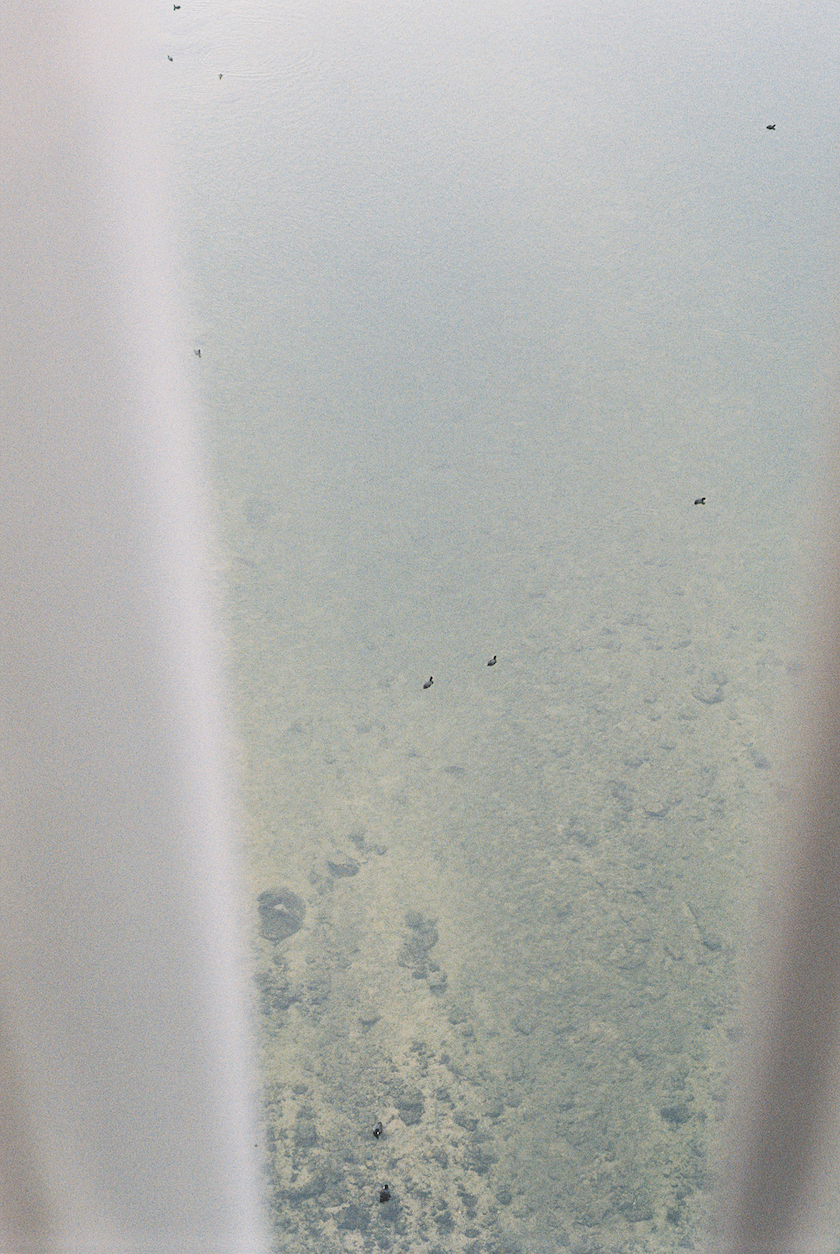
Q: ジェンさんは何に気づき、写真を撮りますか?
Q: At what time, when do you notice and take a photograph?
私がテーマを念頭に置いているかどうかにかかわらず、私のプロセスは感情と本能によって大きく導かれています。文字通りであろうと比喩的であろうと、被写体との繋がりは、私が写真を撮りたくなる主な要因です。
Whether I have a theme in mind or not, my process is heavily guided by emotions and instinct. Connection to the subject, whether it is literal or figurative, is the main factor that makes me want to take a photograph.
Q:今のようにスタイルの写真を撮り始めたのはいつからですか?新しいスタイルの確立により、フォトグラファーとしての仕事に変化はありましたか?
Q: When did you start taking photograph of your own style as you are now? Has the work changed?
私が現在のような作品を撮るようになったのは6年前になります。それは、作家としてのスタイルが固まった時期であり、ある技術を持って作品を作るということを真剣に受けとめ始めた時期でもあります。そのことによって、私の作品は以前より洗練されたものになったと思いますが、作品を構成する本質的なエッセンスは同じままです。
I would say around 6 years ago, that’s when my style really solidified and is also when I started taking the craft seriously. I would say my work is more refined today but the essence has remained the same.
Q:私はあなたの仕事からユニークで個性的な豊かな背景を感じます。ユニークさは作品にどのような意味をもたらすと思いますか?
Q: I feel a unique and unique rich background from your work.What do you think uniqueness brings to the work?
100%正直であれば、すべての仕事はユニークだと思います。私はカメラを前にした時、最も正直な自分になろうとしています。私にとって、書くことや絵画においては、正直で繊細であることは難しいことに気づきましたが、なぜそうなのか、その理由はわかりません。おそらく、カメラはとても簡単なので、レンズは文字通り目を表しています。言葉や絵の具で物事を装飾したり修正したりすることは、むしろ容易いです。写真では、私はイメージは「そこにある」という事実が好きです – まさにそのままがフィルムに永久に埋め込まれているのです。
I believe every work is unique if it is 100% honest. I try to be my most honest self behind the camera. I noticed it’s harder to be honest and vulnerable in writing or painting, I’m not sure why. Perhaps because the camera is so straightforward – the lens literally represents the eye. It’s easy to embellish and revise things with words or paint. With photography, I like the fact that I am “stuck” with an image – that the very second is embedded permanently onto film.
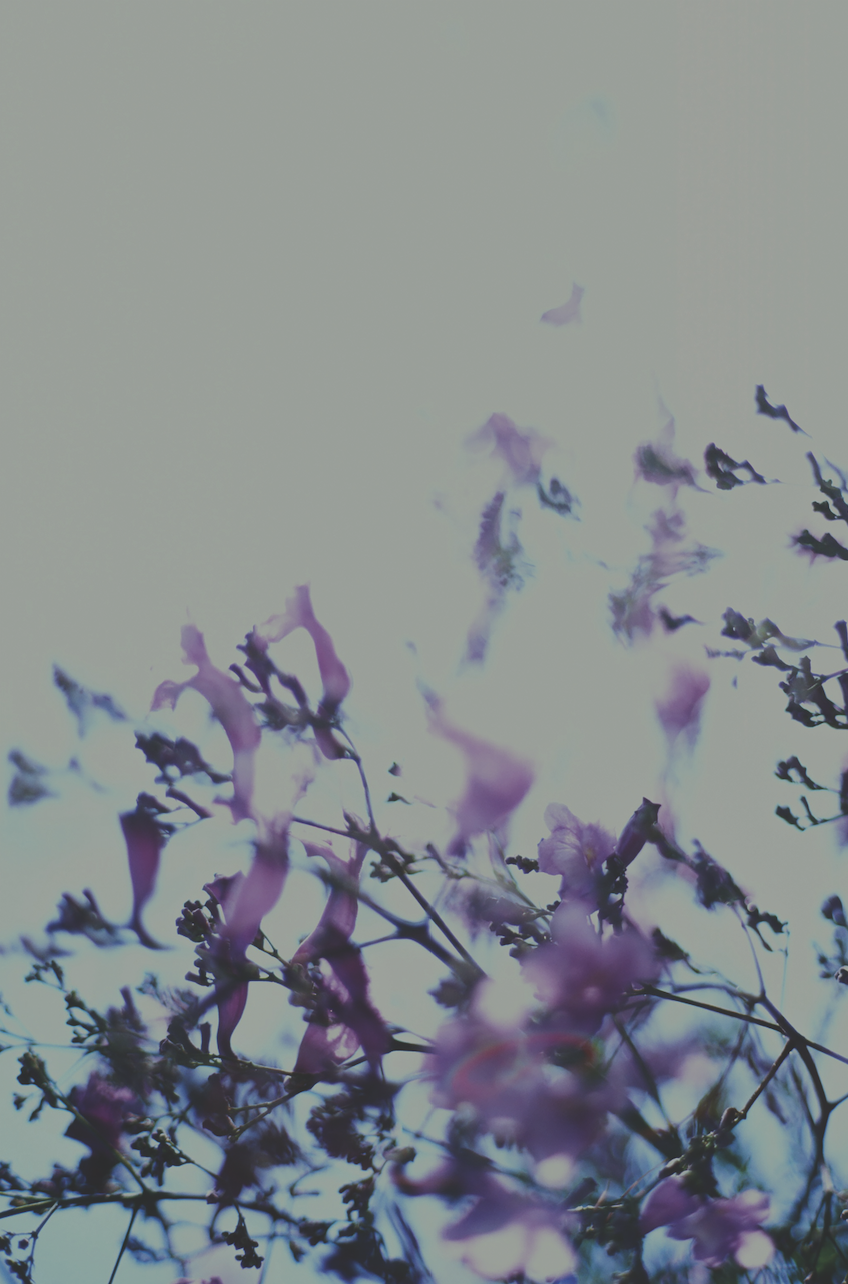
私の仕事の背後にある文脈とインスピレーションについてですが、自然というものが私にとっての究極のミューズであると言っても過言ではありません。私は、自然界におけるすべての存在には、そのものである理由があると信じています。すべての生物種と自然の間には永遠の繋がりがあり、そこには必然性があります。その事実を前に表面的な要素は、過剰なまでの意味を持つ人間関係とは裏腹に、むしろその関係性は極めて表面的であることにとどまります。自然を前にした時、帰属意識と内なる平和を感じることが保証されているので、それ以上に受け入れを切望する必要はありません。私にとって、それは神秘的で神聖なものでもあるのです。
In terms of context and inspiration behind my work, it’s safe to say that nature is my ultimate muse. I believe everything in its natural form exist for a reason. There’s perpetual friendship between all living species and nature, an innate connection between inhabitant and habitat. Superficial elements are futile in the fellowship as opposed to human relationships where they hold excess significance. There is no need to yearn for acceptance as it is guaranteed that you will feel a sense of belonging and inner peace. For me, it is the closest thing to the Divine.
Q:近代から現代において日本の写真は主に日常生活を撮影することで、ユニークな世界観を生み出してきたように思います。ジェンさんの出身地であるソウルの写真の状況をご存知な範囲で教えてください。
Q: Since modern times, Japanese photography has created a unique view of the world by photographing everyday life. Please tell me the photo situation of Seoul, where Jenn is from. ( I like the culture of Korea and Seoul, so I’m interested.
私は間違いなく多くの日本人写真家に触発されてきており、私の絶対的なお気に入りのいくつかは日本からのものです。韓国と日本はどちらも似ていながら、同時に大きく異なってもいます。ただ、とても近い距離にいながらも、控えめに言っても互いの国にはそれぞれ深い歴史があります。ですので両方の文化を観察して比較することはとても興味深いです。
I’m definitely inspired by and relate to a lot of Japanese photographers, some of my absolute favorites being from Japan. Korea and Japan are both similar and vastly different; it’s so interesting to observe and compare both cultures as they’re so close in distance, and have an interesting history together to say the least.
ソウルは、見て感じるためのたくさんの刺激と歴史に満ちており、アーティスト、あるいは人間として生きることにおいて特別な場所です。私はまた、芸術に対する一般大衆の関心が高まっていることに気づきました。最近、トレンドは非常に急速に進む傾向があるので、それが真の関心であり、単なる一過性の流行ではないことを願っています。
Seoul is a special place to live as an artist and human, as it’s so emotionally charged with tons of stimuli and history to view and feel. I also noticed a growing interest among the general public in the arts, which is nice to see. I just hope it is genuine interest and not a fad, as trends tend to move on very quickly these days.
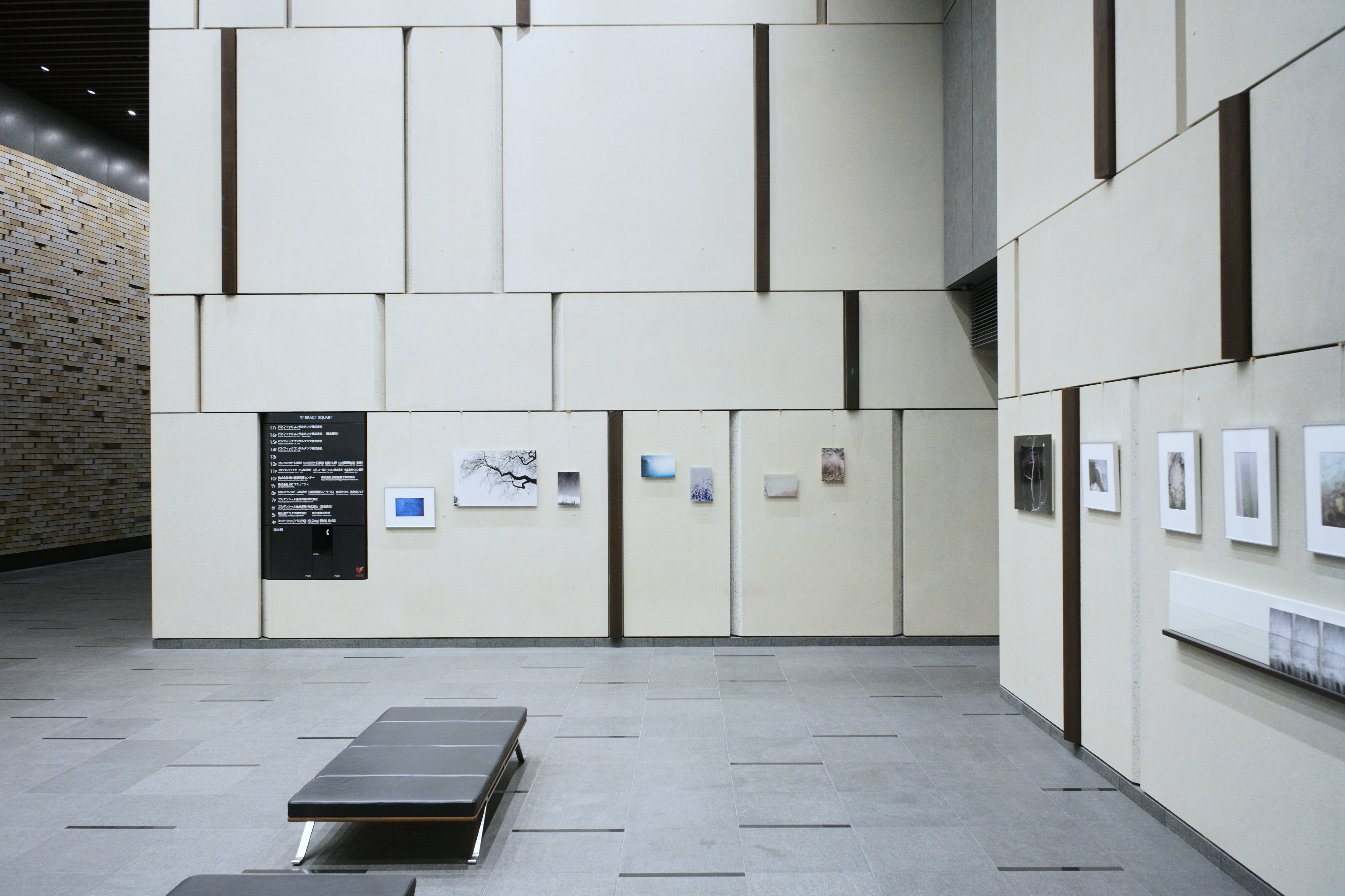 テラススクエア展示風景
テラススクエア展示風景
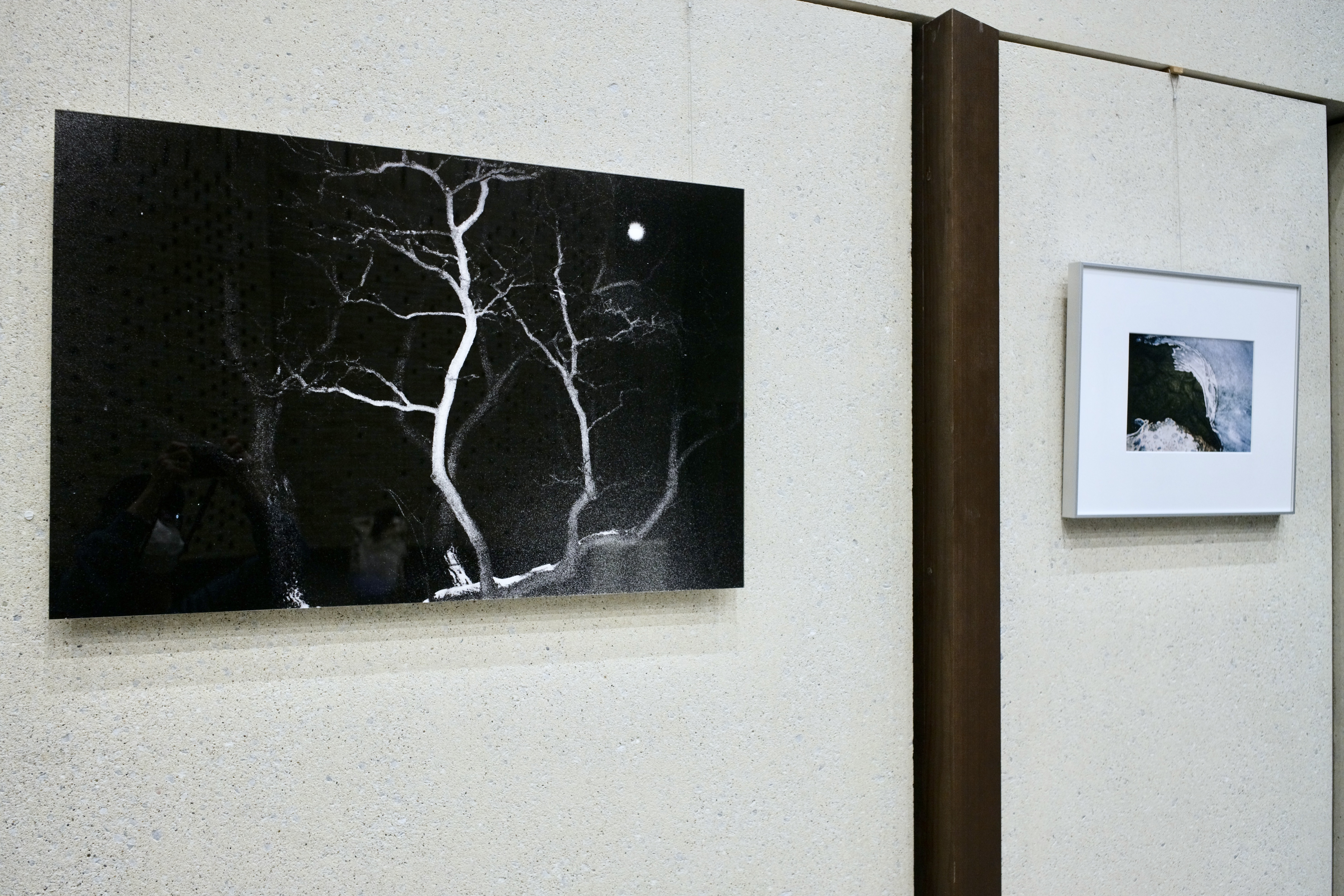 テラススクエア展示風景
テラススクエア展示風景
ただし私は大人としても写真家としても十分な時間をソウルでは過ごしていないので、韓国の現代写真のシーンにあまり精通していません。現在、韓国の文化、メディア、芸術に世界的に大きな注目が寄せられていますが、正直に言うと、コンテンツの多様性はあまりないように感じています。この国のシステムはかなり硬直的で厳格な階層制度があります。創造的な自由の余地はほとんどありませんが、私は新しい世代のために、それが前向きに変化をすることを望んでいます。この国には、完璧さと適合性に対する強い強迫観念がありますが、私は他の小さな、民族的、文化的に均質な国でも同様の感情があることに気づいたので、この問題はもはや韓国に限定されることではないと思っています。LAは逆に何事にも対しても極端で楽観的なところがあります。物事は時々あまりにも無限に感じるので、場違いで現実と乖離していると感じることもあります。ただそれは、数ヶ月にわたり単一のプロジェクトに集中する必要がある場合においては役立つ場合があります。
I’m not too familiar of the contemporary photography scene in Korea as I haven’t spent enough time there as an adult nor a photographer. There’s massive global attention placed on Korean culture, media and the arts currently, but I don’t see much diversity in the content to be completely honest. The system feels pretty rigid and hierarchical which leaves little room for creative freedom, but I am hoping to see change soon for the new generation. There’s a strong obsession for perfection and conformity, but I don’t think this problem is limited to Korea, as I’e noticed similar sentiments in other small, ethnically & culturally homogenous countries. LA is the opposite, but to an extreme. Things feel too boundless at times thus it’s easy to feel out of place and out of touch with reality. Sometimes it helps with artmaking, especially if you need to focus on a singular project for months, for example.
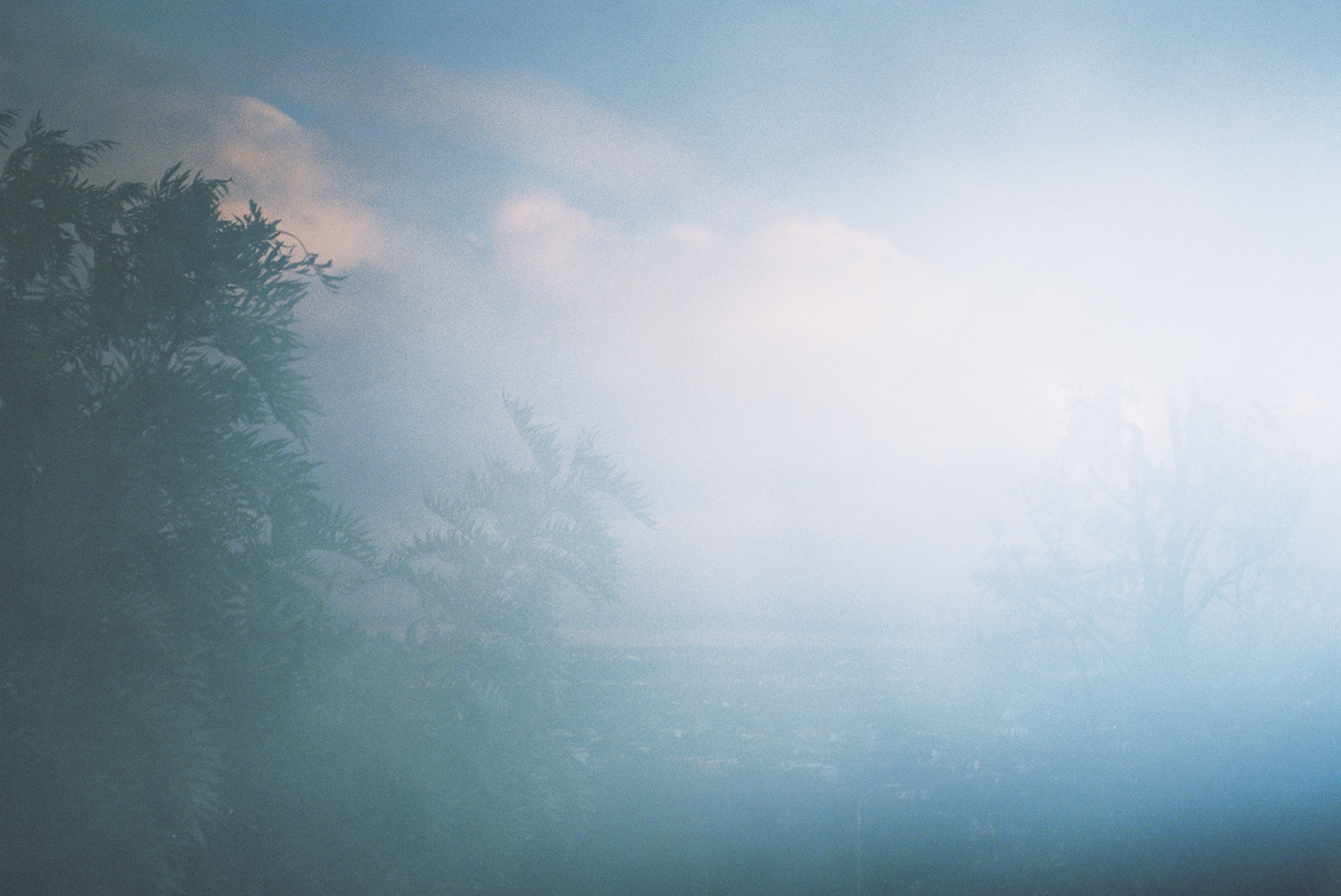
Q:一部の日本の若者には、スマートフォンやデジタルカメラの代わりにフィルムカメラを使って写真を撮る人が増えつつある傾向にあります。韓国/アメリカには、フィルムカメラで写真を撮る若者がたくさんいますか?ジェンもフィルムで写真を撮っていますが、作品を作るための特別なプロセスはありますか?
Q: The number of young people in Japan is taking pictures using a film camera instead of a smartphone and digital camera.Are there many young people in Korea/the US who take pictures with film cameras?Jenn is also taking pictures with film. Do you have any special processing to make the work?
私から一般的なことを話す立場にはありませんが、一部の人にとってそれは、iPhoneやスマートフォンでは写真を撮影することが定着したのは、InstagramやTumblrなどのソーシャルメディアプラットフォームの普及による要因が大きいと思います。ようするに、スマホなどで手軽に写真を撮れることは、それらのメディアを維持するのに役立ちます。その本当のところの意図に関係なく、私自身はそれを肯定的に捉えています。
私の最初のカメラは、日本のニコン製の古いニコマートで、それは私の祖父からの贈り物でした。私は今もそのカメラを持っていて、それを手にするたびにとても感情的になります。私は最初に、マニュアルのフィルムカメラの扱い方と、それを使って作品をつくる方法などを、極めて昔ながらの方法で学びました。暗室は10代の頃の私のお気に入りの場所でした。私はちょうどそのプロセスとメディウムに慣れていたので、フィルムで写真を撮り続けることは私にとって極めて自然なことでした。私は今でもデジタル画像に簡易的なイメージを持っており、好んで用いることはありません。私はフィルムネガがもつ実体が感じられるところと唯一的なところが好きです。
I obviously can’t speak for the entire public, but for some, I believe it is due to its popularization on social media platforms such as Instagram and Tumblr. I view it in a positive light regardless of intent as it’s helping preserve the medium afterall.
My first camera was a gift from my grandfather, an old Nikkormat. I still have that camera and I get quite emotional every time I hold and see it. I first learned photography in a pretty traditional way, with a manual film camera, developing and printing my own photos, etc. The darkroom was my favorite place to spend time in as a teenager. I guess I just got used to the process and the medium, so continuing with film was just natural to me. I am also not a fan of the disposability of digital images. I like the tangibility and exclusivity of film negatives.
 テラススクエア展示風景
テラススクエア展示風景
Q:あなたが知っている韓国の写真文化について教えてください。また、どんな写真家がいますか?
Q: Please tell me about Korean photography culture. What kind of photographers are there?
ロサンゼルス、そして韓国であろうと、現代の写真のシーンやトレンド全般に意識的になったことはないので、この質問には適切に答えられないと思います。私たちは好むと好まざるとに関わらず、日々膨大な量の新しい画像や情報に晒されており、私はそれにかなり圧倒されています。私はむしろ、写真、絵画、映画など、古い芸術作品に興味があります。興味深いことに、それらのアートの中でも写真は非常に民主的なメディウムとなっていると思っていて、変化はあるにしても、ポジティブなものだと考えています。
I don’t think I can properly answer this question as I’m pretty unaware of contemporary photography scenes or trends in general, whether it is LA or Korea. We’re bombarded with new imagery and information daily, which makes me quite overwhelmed. I am more interested in older works of art, whether it is photography, paintings, or film. It’s interesting to note that photography has become a very democratic medium, and I view it as a positive shift for the most part as I believe artmaking should be more accessible.
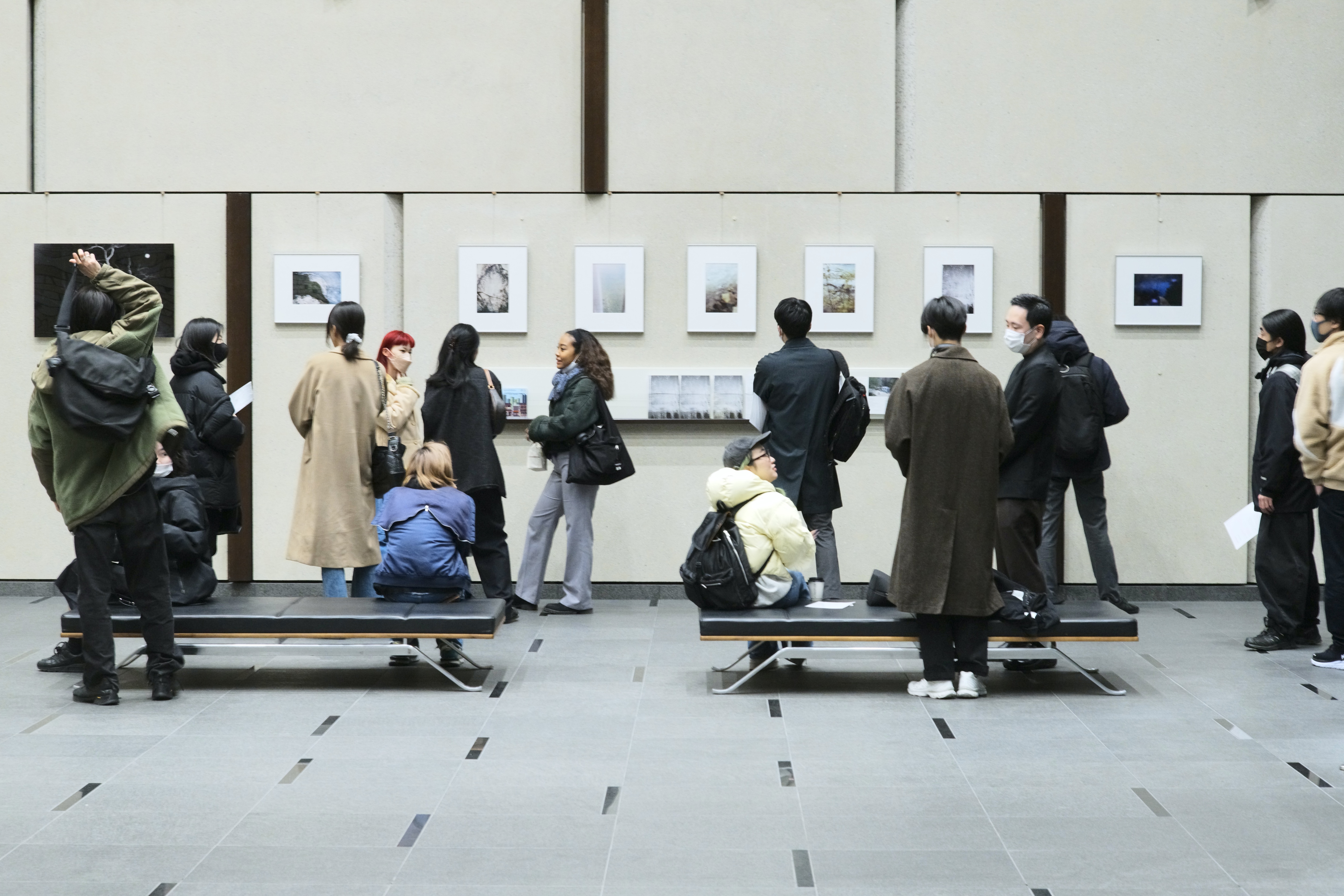 テラススクエア展示風景
テラススクエア展示風景
Q:今回展示されているジェンさんの写真から、私は光と色に対する唯一的な視点とコミットメントを感じました。また、それぞれの写真に強さを感じており、それと同時に全体に対しての強い意志も感じます。自分を表現する方法、被写体やモチーフの選択など、写真に対するあなたの考えを教えてください。
Q: From Jenn’s photos on display this time, I felt a unique perspective and commitment to light and color. Also, I feel that a single photo is strong, and I have a strong will for the whole. Please tell me your thoughts on Jenn’s photos, such as how to express yourself, choosing subjects and motifs.
私にとって、芸術と写真は、簡単に言えば、感情の審美化であり、私が捉える光と色はそれらを具現化しています。私はアーティストから創作物を分離することを信じていませんし、それが可能だとは思いません。個人的に言えば、写真は常に私が世界との関係で自分自身を探求する深く自伝的な方法でした。私は間接的に自分自身を撮影するのが好きです、そして自然と反射は常にそうするための完璧な器として機能してきたので、私の仕事の不変的な要素です。
For me, art and photography is, simply put, aestheticization of emotions, and the light and color I capture embody them. I don’t believe in separating artwork from the artist, nor do I think it’s possible. Personally speaking, photography has always been a deeply autobiographical practice where I explore myself in relation to the world. I like to photograph myself indirectly, and nature and reflections have always served as perfect vessels to do so, thus a fixture in my work.
Q:芸術には、絵画、彫刻、音楽など、さまざまな表現があります。写真の可能性について教えてください。また、写真以外に興味のあるものはありますか?
Q: Art has a variety of expressions such as painting, sculpture, and music. Please tell me about the possibility of the photo. Is there anything you are interested in other than photos?
消費の面では、音楽と文学はおそらくリストの一番上にあります。しかし、私は絵、特に水彩画を描き、定期的に日記も書いています。私の考えですが、私はそれを日記とは呼びません。詩でもありませんが、その中間のなにものかです。私はそれらをカジュアルな黙想と呼んでいます。いつか、ユン・ヒョンクンの日記や、最近読んだ大宰治のエッセイのような、日記のよう本を出版するかもしれません。
In terms of consumption, music and literature are probably at the top of the list. But I dabble in painting, watercolor in particular, and write in my journal regularly. Just my thoughts, but I wouldn’t call it a diary. Not poetry either, but somewhere in the middle. I call them casual musings. Maybe I’ll publish a book of my journal entries one day, something like Yun Hyeong-keun’s diary or Osamu Dazai’s book of essays I recently read.
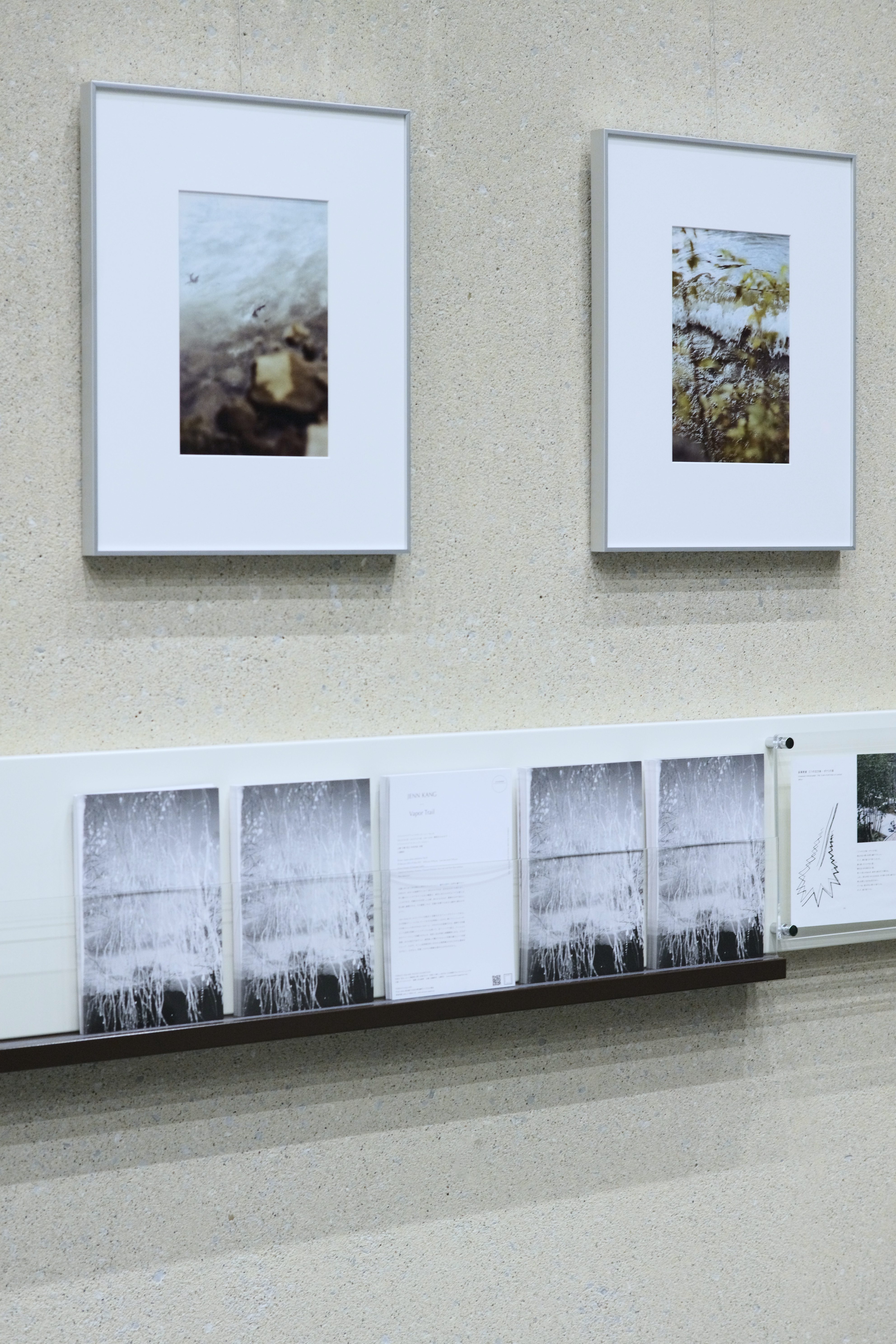
Q:今回はテラススクエアでの展示についてどう思うか教えてください。
Q: Please tell me what you think of exhibiting at Terrace Square this time.
テラススクエアで自分の写真を展示できることをとても楽しみにしています。私の仕事を正当に評価し、理解してくれる人と一緒に働くことができてとても幸運です。それはとても光栄ですし、この美しい機会にとても感謝しています。
I’m very excited to exhibit my photos at Terrace Square. I’m extremely lucky to work with someone who appreciates and understands my work so truthfully. It’s an honor, I’m so grateful for this beautiful opportunity.
Q:展覧会、作品集の出版など、今後の計画を教えてください。
Q: Please tell me your future plans. Exhibitions, publication of works, etc.
1年ほど前から、私にとって初の作品集に取り組んできました。去年の秋に日本を訪れた際、完璧なブックデザイナーに出会いました。今年はそれを出版する予定ですので、楽しみにしていてください。それを世界にシェアするのが待ち遠しいです。
I’ve been working on my first photobook for about a year now. Last fall during my trip to Japan, I met the perfect book designer for it which I am so happy about. I plan to publish it this year so please stay tuned. I can’t wait to finally share it with the world.
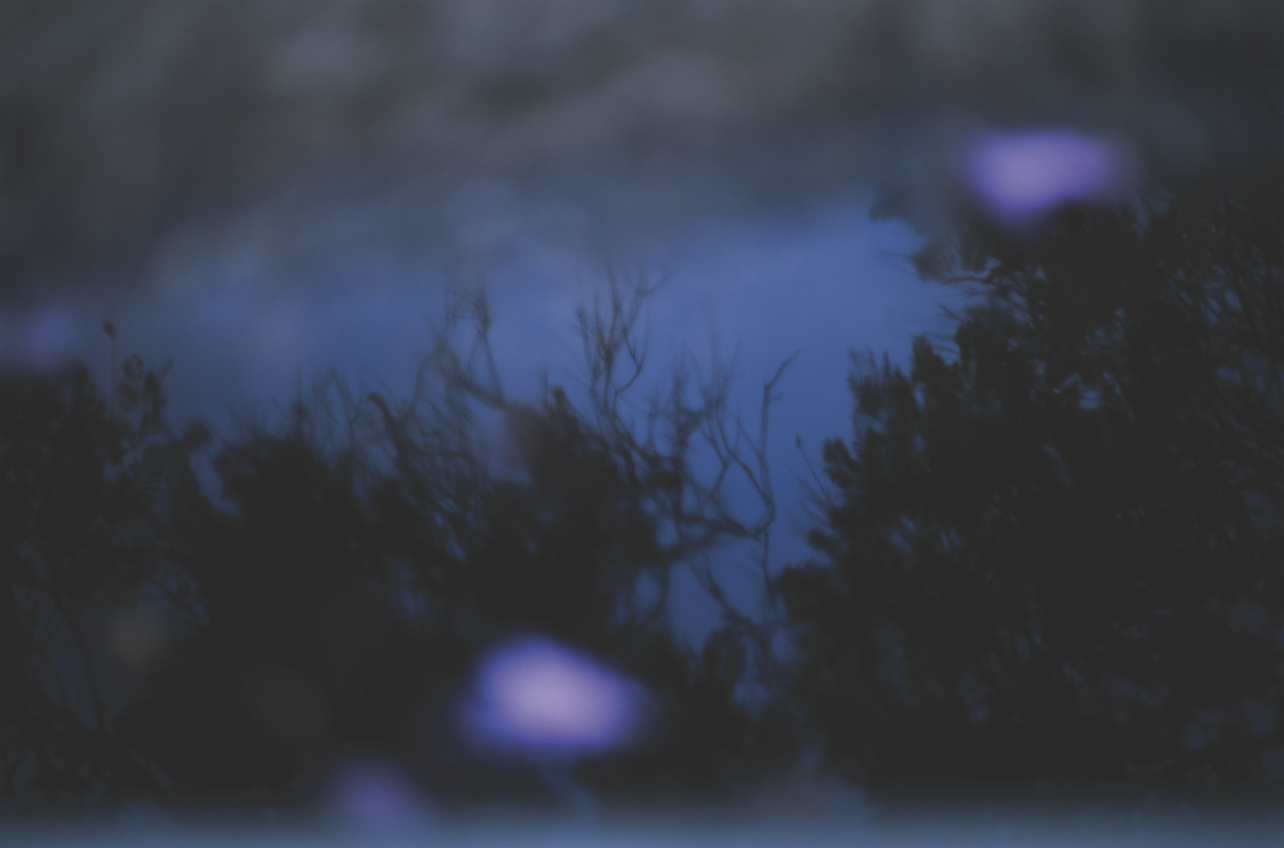
Jenn Kang (b. 1996) is a fine art & fashion photographer based in Los Angeles and Seoul.
https://jenn-kang.net
まとめと展示写真=加藤孝司 Takashi Kato
- テラススクエアフォトエキシビションVol.26「JENN KANG Vapor Trail 」
- 住所: 千代田区神田錦町3-22 テラススクエア 1F エントランスロビー
- 開催日時: 2023年2月20日(月)〜2023年5月19日(金) / 8:00~20:00(最終日は18:30までとなります)
- 休館日: 土曜・日曜・祝日・年末年始 入場無料

- #88
- #Adam Ianniello
- #ART
- #CAT
- #coffee
- #Hiroshima
- #Interview
- #IT
- #JENN KANG
- #Johanna Tagada Hoffbeck
- #JohannaTagadaHoffbeck
- #Kanadehamamoto
- #Kei Ono
- #Masahisa Fukase
- #Ohenro
- #review
- #Shota KONO
- #ShotaKONO
- #Tokushima
- #くらし
- #アユニ・D
- #アート
- #インタビュー
- #インテリア
- #カフェ
- #コーヒー
- #ジョアンナ・タガダ・ホフベック
- #スイーツ
- #デザイン
- #パナソニック
- #フォト
- #ワイン
- #三部正博
- #井崎竜太朗
- #今井智己
- #写真
- #加藤孝司
- #喫茶
- #土間
- #堀 裕貴
- #小野啓
- #山口息吹
- #山本康平
- #岡崎果歩
- #建築
- #映像
- #本
- #本多康司
- #根本絵梨子
- #池谷陸
- #池野詩織
- #渡邉りお
- #渡邊りお
- #猫
- #笠原颯太
- #紙
- #編集長日記
- #街歩き
- #諏訪万修
- #野口花梨
- #長田果純
- #音楽





